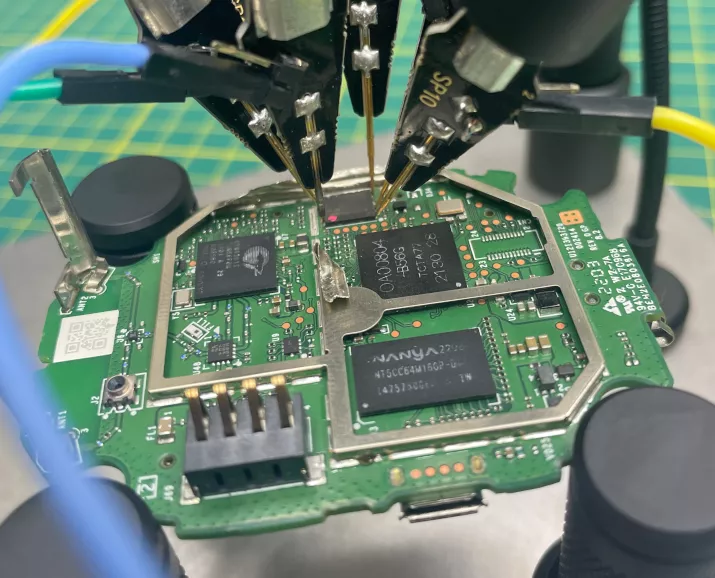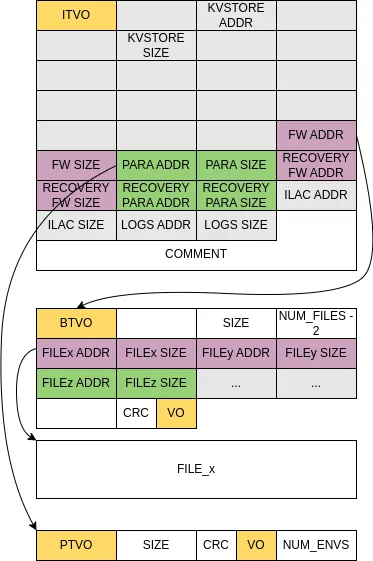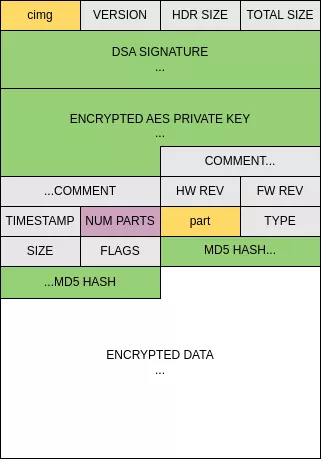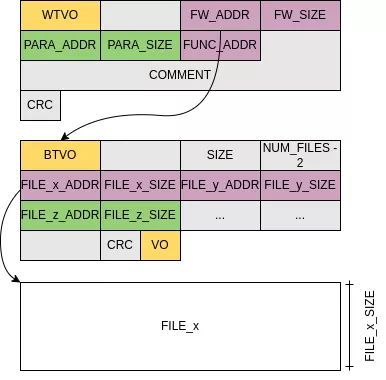Arlo: I'm watching you
The consumer-focused Pwn2Own competition returned in Toronto in 2023 with the "SOHO smashup" category, but also added cameras under a new "Surveillance Systems" category. While we already had success with the Wyze Cam v3 and Synology BC500 in this category, other targets were also looked at. Therefore, this blog post aims at bootstrapping vulnerability research on Arlo cameras.
Vous souhaitez améliorer vos compétences ? Découvrez nos sessions de formation ! En savoir plus
The camera comes with a USB charging cable and a battery. When installing the battery (following the user manual), a Micro-USB female port is found when removing the camera housing. However no device appears on the host when plugging a USB cable.
The device is configured using a QR code including SSID and password that the camera parses in order to connect to Wi-Fi networks. Once connected, all the traffic goes to Arlo cloud through TLS connections. Apart from NTP, only one request is performed without encryption: a HEAD HTTP request to http://updates.arlo.com/arlo/fw/fw_deployed/production/updaterules/FB1001_UpdateRules.json. This URI describes update binaries that can be downloaded (with paths relative to http://updates.arlo.com/arlo/fw/fw_deployed/production/), but the files are encrypted.
A mobile application (iOS and Android) manages the newly set up camera, but all traffic also goes to Arlo cloud and no direct connection between the phone and the camera could be identified.
Hardware exploration
Having no shell to interact with the system, neither clear text firmware to analyze, we have to resort to memory dumping to have anything to work with. This model internally consists of 2 PCBs, with shields hiding the chipsets. After removing them, it is possible to identify the chipsets manufacturers and models. The SoC is a Cypress (now Infineon) CYW43012, assisted with a OA00804-B56G video processor (the closest found documentation is for the 0A00805-B56G-Z), using Nanya NT5CC64M16GP-DI RAM and Winbond W25Q256JW_DTR Serial Flash memory. The device is either powered by the power cable (connector on the left), battery (connector at the top right) or Micro-USB (top). The teardown process of a relatively similar model is also detail by iFixit.

Some pins of the Serial Flash memory are not easily accessible because of the shield, but it is easily bent or removed. Also, the W25Q256JW_DTR package is of WSON type, and the SOIC clip does not fit on the package, so PCBite are required to access the SPI pins.

Trying to dump the memory using 1.8V SPI, as stated in the datasheet, yield no response. However the dump succeeded using a 3.3V SPI adapter:
$ sudo flashrom -p buspirate_spi:dev=/dev/ttyUSB0,spispeed=2Mhz -c W25Q256JW_DTR -r dump.bin
[...]
Found Winbond flash chip "W25Q256JW_DTR" (32768 kB, SPI) on buspirate_spi.
Reading flash... done.
Firmware anatomy
Unlike the update binary, the firmware is stored in clear text and strings in the file confirms this is code running on the SoC. However, the binary dump is not loaded as-is in memory, and we need to understand the binary format before analyzing code.
$ strings dump.bin
[...]
Easycam Liveview
OvSelectApp
Unable to write OvAppSelect
CamModePerm
CamModeTemp
sf_detect %s: %x(%x)
sflash found: %s
sf detect failed, readid: %x
error: g_sflash_fun_init.erase is NULL
error: g_sflash_fun_init.program is NULL
error: g_sflash_fun_init.read is NULL
error: data length is forbidden as 0 when read serial flash
EEROR:set qe bit error:%d
flash id not match, read:0x%x(0x%x)
ERROR:hardware haed magic num error,read:%x should be 0x4f565449
ERROR:para haeder magic num error,read:%x should be 0x4f565450
ERROR:fw haeder magic num error,read:%x should be 0x4f565442
para header error
para crc error
magic3 is broken, need do partitioin recover
[...]
The error strings indicate the magic values: 0x4f565449/"ITVO" for hardware head, 0x4f565442/"BTVO" for fw header and 0x4f565450/"PTVO" for para header (the typos are corrected for readability).
 |
|
The CRC implementation is CRC16 CCITT.
ITVO
The ITVO header mainly holds information about area on the Flash memory, with address and size as uint32_t:
kvstoreapparently storing sensitive information, but this has not been investigated.fwstoring binaries executed on the CPU or peripheral CPUs, starting with aBTVOheader.parastoring configurations for the device, starting with aPTVOheader.caliapparently storing encrypted information, using key from thekvstore, starting with aCALIheader.logsnotably where logs are written when the device halts or reboots.
PTVO
The PTVO header describes configuration area. It starts with a YTVO header aligned on 0x1000 memory pages, holding notably its size and an ID. It is then followed by the configuration itself, also aligned on 0x1000 memory pages, and stored in text format as key/value pairs separated by = and followed by \n.
BTVO
The BTVO header describes the firmware binaries, loaded as-is in memory to be executed by the CPU or loaded in a second step by the peripheral requiring it. This device is based on an RTOS and the different modes of operation (setup, update, etc.) are not different tasks on the same OS but rather distinct full images loaded in memory when needed. These full images correspond to different "files" in the header and the index is used to address a specific mode of operation. Mode switching is performed by loading the file at its load address in memory and restarting. A shell is present in some files, so it is easy to determine the mapping between IDs and modes:
int __fastcall cmd_fw(int argc, char **argv) {
int fw_id; // r0
if ( argc <= 1 )
goto ERROR;
if ( !strcmp(argv[1], "uploading") ) {
fw_id = 2;
RELOAD_FW:
reload_fw(fw_id);
return 0;
}
if ( !strcmp(argv[1], "liveview") ) {
fw_id = 4;
goto RELOAD_FW;
}
if ( !strcmp(argv[1], "arlogw") )
goto RELOAD_ARLOGW;
if ( !strcmp(argv[1], "calfw") ) {
fw_id = 14;
goto RELOAD_FW;
}
if ( !strcmp(argv[1], "upgrade") ) {
fw_id = 9;
goto RELOAD_FW;
}
if ( !strcmp(argv[1], "setup") ) {
fw_id = 12;
goto RELOAD_FW;
}
if ( !strcmp(argv[1], "setupqr") ) {
fw_id = 15;
goto RELOAD_FW;
}
if ( !strcmp(argv[1], "pjsip") ) {
RELOAD_ARLOGW:
fw_id = 36;
goto RELOAD_FW;
}
ERROR:
printf("usage: fw [ uploading | liveview | arlogw | calfw | setup | setupqr | upgrade ]\n");
return 0;
}
The setupqr mode handles device setup using the QR code to obtain Wi-Fi credentials. The arlogw mode appears to be the nominal mode when the device is properly setup and may have absorbed functionalities over time as it embeds pjsip COTS for audio/video streaming. Some modes use two files, in this case the first one is in charge of loading the second one, so mostly similar but slightly different file loading routines are present in most binaries.
The upgrade mode handles downloading, verifying and writing the update to the Flash memory. The analysis of this file was sufficient to understand the (encrypted) update format and process.
Updates
Fetching and parsing
As stated previously, the update process first retrieves a JSON file. However, the URL previously identified does not match updates for this model. The proper update URL is https://updates.arlo.com/arlo/fw/fw_deployed/production/updaterules/VMC4041P_UpdateRules.json (VMC4041P is the model ID of the Arlo Pro4). This JSON document contains the binary path, its version and date, and the MD5 hash of the binary.

The downloaded binary follows this format:
- Magic bytes to identify the format,
cimg. - The format version,
1in this case but2exists. - The header and total size of the binary, header size is
0x178for version1. - The DSA signature of the package, (
s1,s2) in ASN.1. - An encrypted AES key.
- A comment string, empty in all observed updates.
- A hardware and firmware revision, both
0in all observed updates. - The binary timestamp in epoch format.
- The number of following parts.
The part format is as follows:
- Magic bytes,
part. - A type, either
1(rootfs), 2 (generic),3(kernel). - The size of the data.
- Flags describing how the data is stored, either
0(stored),1(compressed),2(encrypted) or3(compressed+encrypted). - A MD5 hash of the data. As this camera model does not check the hash validity, it is not clear what the input data exactly is.
The DSA signature is performed on the whole file with the signature removed.
Decryption
The AES key is decrypted using an RSA private key that is embedded in the loaded file. The RSA private key is encrypted using a XOR key of 4 bytes, also in the loaded file.
do {
rsa_priv_key[i] = ~xor_key[i & 3] ^ rsa_priv_key_obf[i];
++i;
} while ( i != 1193 );
bio = BIO_new_mem_buf(rsa_priv_key, 1193);
The clear text AES key is provided to EVP_BytesToKey along with a fixed salt from the loaded file in order to derive the actual key with the IV.
As OpenSSL is used in a version before 3.0, function identification is broadly possible using ERR_put_error(int lib, int func, int reason, const char *file, int line): once this latter function is identified (the file parameter is helpful for this), it is possible to rename functions calling it using the lib and func parameters. The openssl_err.py script in the GitHub repository parses the .h file in the openssl include directory to generate a Python dict. The latter is then used in the ossl_rename_ida.py script that uses the Bip plugin to rename the functions.
Regarding missing names, it is possible to use ossl_assert parameters as they include the file path and line number. For instance, ossl_assert_int("/home/jenkins/agent/workspace/_VMC4041P_1.080.20.0_483_0f3935c/omnivision/make/../share/network/openssl/crypto/evp/digest.c", 271, "ctx->digest->md_size <= EVP_MAX_MD_SIZE") must match EVP_DigestFinal_ex.
Other function, such as EVP_aes_256_cbc and EVP_sha1, can be identified by using cross-references to NID definitions to identify the algorithm, for instance #define NID_aes_256_cbc 427 and #define NID_sha1 64:
DDR_CODE:201244C0 aes_256_cbc DCD 427, 16, 32, 16, 20482
DDR_CODE:201244D4 DCD aes_init_key
DDR_CODE:201244D8 DCD sub_200B3BF0
[...]
DDR_CODE:201245BC sha1 DCD 0x40, 0x41, 0x14, 0xC
DDR_CODE:201245CC DCD sub_200B3D58
DDR_CODE:201245D0 DCD sub_200B3DB0
WTVO
Once decrypted, the content of a part is a WTVO header using the same logic as other headers:

The WTVO header holds information about the update content, similarly to what has been previously identified:
fwis actually a fullBTVOarea that is copied as-is on the Flash memory.- Eventually
parawould be aPTVOarea copied as-is on the Flash memory but no updates were found to containpara. - A comment string.
- A CRC to verify the header.
Key reuse
The URL for downloading updates is built using snprintf(dst, 256, "%s/updaterules/%s_UpdateRules.json", update_url, base_model_id) where update_url is one of:
- https://arloupdates.arlo.com/arlo/fw/fw_deployed/dev
- https://arloupdates.arlo.com/arlo/fw/fw_deployed/qa
- https://arloupdates.arlo.com/arlo/fw/fw_deployed/goldenft
- https://updates.arlo.com/arlo/fw/fw_deployed/staging
- https://updates.arlo.com/arlo/fw/fw_deployed/fieldtrial
- https://updates.arlo.com/arlo/fw/fw_deployed/production
The base_model_id is VMC4041P for this specific model. The list of possible base_model_id can be found on the Arlo support website.
URLs are accessible for every environments and all models, meaning we can download every currently available update binaries! And it seems the RSA private key is associated with the version 1 of the cimg format rather than specific for each model, hence we can decrypt many more firmware:
- Cameras
- Arlo Wire-Free
- NTGR_1.5.295_WiFi_upgrade.bin.enc cimg: version: 1 size: 0x18be78, date: 2021-08-31T21:07:27 / part: kernel, encrypted / OVTW: (v1.5.295)
- Arlo Pro
- VMC4030_1.092.1.0_9_120d8b7.bin.enc cimg: version: 1 size: 0x3076c8, date: 2021-08-25T07:36:52 / part: kernel, encrypted
- Arlo Pro 2
- VMC4030P_1.125.17.1_11_de8490d.bin.enc cimg: version: 1 size: 0x387788, date: 2021-09-04T01:39:52 / part: kernel, encrypted
- Arlo Pro 3
- http://updates.arlo.com/arlo/fw/fw_deployed/production/updaterules/VMC4040P_UpdateRules.json HTTP 404
- Arlo Pro 4 (VMC4050P)
- http://updates.arlo.com/arlo/fw/fw_deployed/production/updaterules/VMC4050P_UpdateRules.json HTTP 404
- Arlo Pro 4 (VMC4041P)
- VMC4041P_1.080.20.1_23_d50a19d.bin.enc cimg: version: 1 size: 0xc37248, date: 2023-08-08T00:27:03 / part: kernel, encrypted
- Arlo Pro 5S
- http://updates.arlo.com/arlo/fw/fw_deployed/production/updaterules/VMC4060P_UpdateRules.json HTTP 404
- Arlo Ultra / Ultra 2
- VMC5040_1.070.52.1_35_1bdb65f.bin.enc cimg: version: 1 size: 0x656768, date: 2021-09-04T01:44:14 / part: kernel, encrypted
- Arlo Essential Outdoor 2nd Gen (VMC2050)
- VMC2050-1.2.2_512_9955b13.prod-pd.enc cimg: version: 2 size: 0x6e31c8, date: 2023-10-24T01:10:44, (VMC2050) / part: kernel, encrypted
- VMC2050-1.2.2_512_9955b13.prod-pp.enc cimg: version: 2 size: 0x6e31c8, date: 2023-10-24T02:22:05, (VMC2050) / part: kernel, encrypted
- Arlo Essential Outdoor 2nd Gen (VMC3050)
- VMC3050-1.2.2_512_9955b13.prod-pd.enc cimg: version: 2 size: 0x6e31c8, date: 2023-10-24T01:14:26, (VMC3050) / part: kernel, encrypted
- VMC3050-1.2.2_512_9955b13.prod-pp.enc cimg: version: 2 size: 0x6e31c8, date: 2023-10-24T02:21:55, (VMC3050) / part: kernel, encrypted
- Arlo Essential XL Outdoor 2nd Gen (VMC2052)
- http://updates.arlo.com/arlo/fw/fw_deployed/production/updaterules/VMC2052_UpdateRules.json HTTP 404
- Arlo Essential XL Outdoor 2nd Gen (VMC3052)
- http://updates.arlo.com/arlo/fw/fw_deployed/production/updaterules/VMC3052_UpdateRules.json HTTP 404
- Arlo Essential
- VMC2020_1.090.32.1_55_07e3402.bin.enc cimg: version: 1 size: 0xda01e8, date: 2023-08-03T02:24:07 / part: kernel, encrypted / BTVO: long
- Arlo Essential Spotlight
- VMC2030_1.090.32.1_55_07e3402.bin.enc cimg: version: 1 size: 0xda01e8, date: 2023-08-03T03:21:49 / part: kernel, encrypted / BTVO: long
- Arlo Essential XL Spotlight
- http://updates.arlo.com/arlo/fw/fw_deployed/production/updaterules/VMC2032_UpdateRules.json HTTP 404
- Arlo Q
- VMC3040-1.7.4_5517.prod.upgrade cimg: version: 1 size: 0x2873f78, date: 2016-04-02T02:06:03 / part: rootfs, compressed+encrypted, zlib, unknown magic b'\x00\x90\x0f\xe1' / part: generic, encrypted, SquashFS
- VMC3040-1.13.0.0_95_a58d08a_db3500e.prod.upgrade cimg: version: 1 size: 0x2b320a8, date: 2023-03-14T06:47:10 / part: rootfs, compressed+encrypted, zlib, unknown magic b'\x00\x90\x0f\xe1' / part: generic, encrypted, SquashFS
- Arlo Q+
- http://updates.arlo.com/arlo/fw/fw_deployed/production/updaterules/VMC3040S_UpdateRules.json HTTP 404
- Arlo Essential Indoor 2nd Gen (VMC2060)
- VMC2060-1.2.2_515_b1ea04e.prod-pd.enc cimg: version: 2 size: 0x6a41c8, date: 2023-11-07T18:02:16, (VMC2060) / part: kernel, encrypted
- VMC2060-1.2.2_515_b1ea04e.prod-pp.enc cimg: version: 2 size: 0x6a41c8, date: 2023-11-07T18:33:54, (VMC2060) / part: kernel, encrypted
- Arlo Essential Indoor 2nd Gen (VMC3060)
- VMC3060-1.2.2_515_b1ea04e.prod-pd.enc cimg: version: 2 size: 0x6a41c8, date: 2023-11-07T18:05:58, (VMC3060) / part: kernel, encrypted
- VMC3060-1.2.2_515_b1ea04e.prod-pp.enc cimg: version: 2 size: 0x6a41c8, date: 2023-11-07T18:34:01, (VMC3060) / part: kernel, encrypted
- Arlo Essential Indoor
- VMC2040_OTA-1.19.0.0_1182_900c0a4_d2776d0.prod.enc cimg: version: 1 size: 0x11ccc88, date: 2023-09-26T17:27:15 / part: kernel, encrypted, SquashFS
- VMC2040_OTA-1.19.0.0_1182_900c0a4_d2776d0.prod.sig.enc cimg: version: 1 size: 0x11cce88, date: 2023-09-26T17:27:15 / part: kernel, encrypted, SquashFS
- Arlo Baby
- ABC1000-1.14.0.0_124_a58d08a_b7792aa.prod.upgrade cimg: version: 1 size: 0x34e2148, date: 2023-03-14T06:27:36 / part: rootfs, compressed+encrypted, zlib, unknown magic b'\xf6)\x00\xeb' / part: generic, encrypted, SquashFS
- Base_Station_SmartHub
- Arlo Base Station (VMB3010)
- VMB3010-1.21.0.2_1540_8a519c8.prod.chk.enc cimg: version: 1 size: 0xcfc1d8, date: 2023-05-20T08:43:18 / part: kernel, encrypted, NETGEARHDR0
- Arlo Base Station (VMB3500)
- VMB3500-1.21.0.2_1296_8a519c8.prod.upgrade cimg: version: 1 size: 0xaed9e8, date: 2023-05-20T08:57:59 / part: rootfs, compressed+encrypted, zlib, unknown magic b"'\x05\x19V" / part: generic, encrypted, UBI
- Arlo Pro Base Station (VMB4000)
- VMB4000-1.21.1.0_4302_9611cf3.prod.chk.enc cimg: version: 1 size: 0xfd01d8, date: 2023-06-16T08:26:17 / part: kernel, encrypted, NETGEARHDR0
- Arlo Pro Base Station (VMB4500)
- VMB4500-1.21.1.0_4167_9611cf3.prod.upgrade cimg: version: 1 size: 0xd0dbe8, date: 2023-06-16T08:05:18 / part: rootfs, compressed+encrypted, zlib, unknown magic b"'\x05\x19V" / part: generic, encrypted, UBI
- Arlo Pro 3 SmartHub
- VMB4540-1.21.1.0_1399_9611cf3.prod.upgrade cimg: version: 1 size: 0xe60248, date: 2023-06-16T09:39:26 / part: rootfs, compressed+encrypted, zlib, unknown magic b"'\x05\x19V" / part: generic, encrypted, UBI
- Arlo Ultra Smarthub
- VMB5000-1.21.1.0_1431_9611cf3.prod.upgrade.enc cimg: version: 1 size: 0x13ad7a8, date: 2023-06-16T12:38:58 / part: kernel, encrypted, pkgtb
- Doorbells
- Arlo Video Doorbell 2nd Gen (AVD3001)
- AVD3001-1.2.1_435_abb9732.prod-pd.enc cimg: version: 2 size: 0x65a1b8, date: 2023-10-18T23:54:56, (AVD3001) / part: kernel, encrypted
- AVD3001-1.2.1_435_abb9732.prod-pp.enc cimg: version: 2 size: 0x65a1b8, date: 2023-10-19T02:13:43, (AVD3001) / part: kernel, encrypted
- Arlo Video Doorbell 2nd Gen (AVD4001)
- AVD4001-1.2.1_435_abb9732.prod-pd.enc cimg: version: 2 size: 0x6481b8, date: 2023-10-19T00:00:14, (AVD4001) / part: kernel, encrypted
- AVD4001-1.2.1_435_abb9732.prod-pp.enc cimg: version: 2 size: 0x6481b8, date: 2023-10-19T01:37:06, (AVD4001) / part: kernel, encrypted
- Arlo Video Doorbell - Wired
- AVD1001_OTA-1.19.0.0_3_098d492_3567407.prod.enc cimg: version: 1 size: 0x1081878, date: 2023-09-13T20:01:39 / part: kernel, encrypted, SquashFS
- AVD1001_OTA-1.19.0.0_3_098d492_3567407.prod.sig.enc cimg: version: 1 size: 0x1081a78, date: 2023-09-13T20:01:39 / part: kernel, encrypted, SquashFS
- Arlo Video Doorbell Wire-Free
- AVD2001_OTA1-1.8.0.0_4_4a16fed_758744c.prod.enc cimg: version: 1 size: 0x1946188, date: 2023-10-27T16:00:51 / part: kernel, encrypted, SquashFS
- AVD2001_OTA2-1.8.0.0_4_4a16fed_758744c.prod.enc cimg: version: 1 size: 0x157c368, date: 2023-10-27T16:00:51 / part: kernel, encrypted, SquashFS
- AVD2001_OTA2-1.8.0.0_4_4a16fed_758744c.prod.sig.enc cimg: version: 1 size: 0x157c8f8, date: 2023-10-27T16:00:52 / part: kernel, encrypted, SquashFS
- Arlo Audio Doorbell
- AAD1001_1.2.0.0_320_401_DV1.bin unexpected container b'MMM\x00'
- AAD1001_1.2.0.0_320_401_DV1.bin.enc cimg: version: 1 size: 0x7e248, date: 2021-08-18T00:16:46 / part: kernel, encrypted, MMM
- AAD1001_1.2.0.0_320_401_DV2.bin unexpected container b'MMM\x00'
- AAD1001_1.2.0.0_320_401_DV2.bin.enc cimg: version: 1 size: 0x7e5d8, date: 2021-08-18T00:18:13 / part: kernel, encrypted, MMM
- Arlo Chime V2
- AC2001_OTA-1.1.0.0_314_d36790b.prod.enc cimg: version: 1 size: 0xf63f8, date: 2023-05-03T18:09:53 / part: kernel, encrypted, MMM
- AC2001_OTA-1.1.0.0_314_d36790b.prod.sig.enc cimg: version: 1 size: 0xf63f8, date: 2023-05-03T18:09:53 / part: kernel, encrypted, MMM
- Arlo Chime
- AC1001_1.2.0.0_320_392_DV1.bin unexpected container b'MMM\x00'
- AC1001_1.2.0.0_320_392_DV1.bin.enc cimg: version: 1 size: 0x7abe8, date: 2021-08-18T00:16:37 / part: kernel, encrypted, MMM
- AC1001_1.2.0.0_320_392_DV2.bin unexpected container b'MMM\x00'
- AC1001_1.2.0.0_320_392_DV2.bin.enc cimg: version: 1 size: 0x7af48, date: 2021-08-18T00:17:55 / part: kernel, encrypted, MMM
- Floodlights
- Arlo Pro 3 Floodlight
- FB1001_1.080.28.0_12_590aec8.bin.enc cimg: version: 1 size: 0xc3e388, date: 2023-06-15T04:00:28 / part: kernel, encrypted
- Arlo Security Light
- http://updates.arlo.com/arlo/fw/fw_deployed/production/updaterules/ABB1000_UpdateRules.json HTTP 404
- Arlo_Home_Security_System
- Arlo Keypad Hub
- http://updates.arlo.com/arlo/fw/fw_deployed/production/binaries/LBB1001 HTTP 404
- http://updates.arlo.com/arlo/fw/fw_deployed/production/binaries/LBB1001 HTTP 404
- SH1001-1.10.8_c1a07e9.enc cimg: version: 2 size: 0xef3d28, date: 2023-10-27T08:09:31, (SH1001) / part: kernel, encrypted
- Arlo Siren
- SLB1001-1.0.144_921dfbf.enc cimg: version: 2 size: 0x641c8, date: 2023-09-15T21:02:16, (SLB1001) / part: kernel, encrypted
- SLB1001-1.0.144_921dfbf.devsig.enc cimg: version: 2 size: 0x64278, date: 2023-09-15T21:02:16, (SLB1001) / part: kernel, encrypted
- SLB1001-1.0.144_921dfbf.sig.enc cimg: version: 2 size: 0x64278, date: 2023-09-15T21:02:16, (SLB1001) / part: kernel, encrypted
- Arlo All-in-One Sensor
- MS1001-2.1.246_e8e8e84.enc cimg: version: 2 size: 0x66838, date: 2023-09-20T22:16:02, (MS1001) / part: kernel, encrypted
- MS1001-2.1.246_e8e8e84.sig.enc cimg: version: 2 size: 0x668e8, date: 2023-09-20T22:16:02, (MS1001) / part: kernel, encrypted
- Arlo Safe Button
- FG_FW-0.0.26.2-apploader-signed.gbl unexpected container b'\xeb\x17\xa6\x03'
- FG_FW-0.0.26.2-application-signed.gbl unexpected container b'\xeb\x17\xa6\x03'
Some of these updates are not an RTOS but rather a Linux kernel with a rootfs, either SquashFS or UBI. Also, the key and format for cimg version 2 is not the same, so it was not possible to decrypt such updates.
Tooling
The tools developed during this study are available on our GitHub repository. When known, the output includes scripts to load the mode, such as arlogw, directly in IDA with proper load address and the related binary loaded.
Conclusion
You are now ready to bootstrap your own vulnerability research, as long as you are able to find out the RSA private key by yourself, as Arlo prefers this private key not to be released. Also keep in mind that the attack surface is small, unless you know how to perform Man-in-the-Middle attacks on TLS connections!
